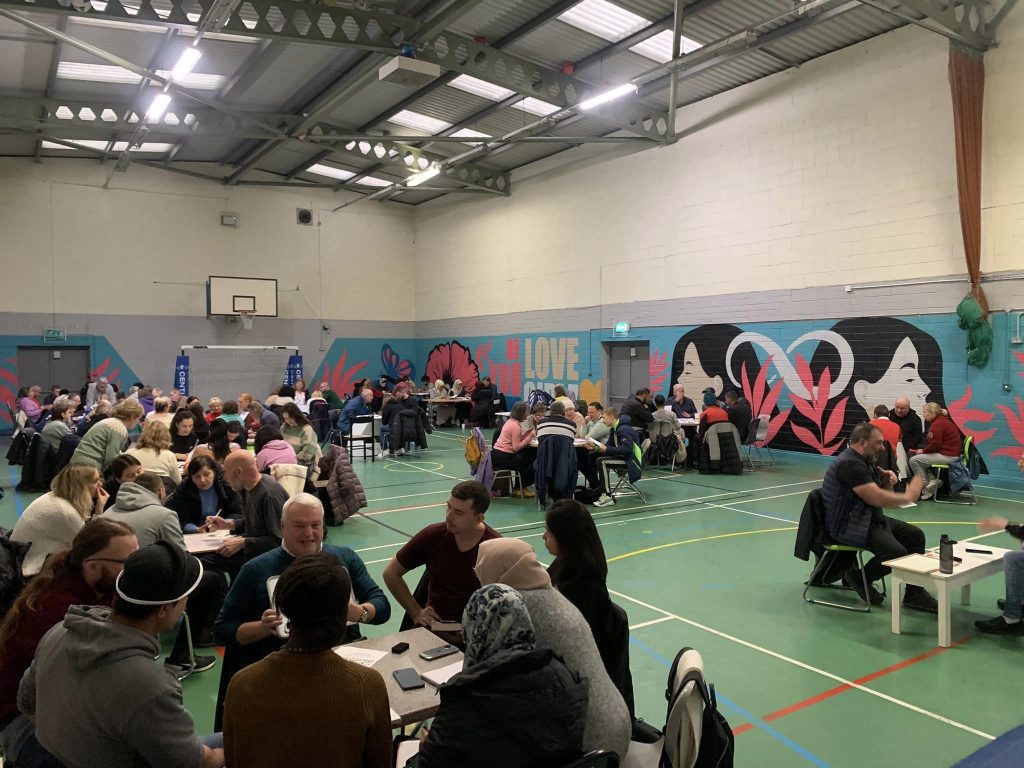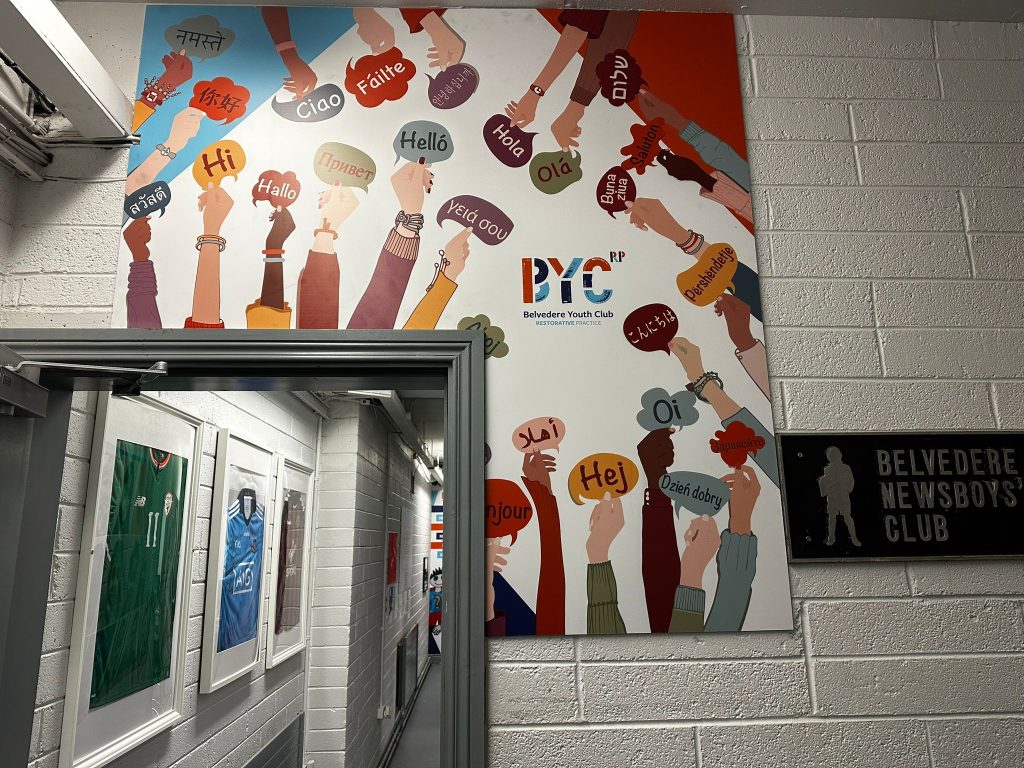When implementing RP in BYC, the youth club community tries to achieve four outcomes: Role models are emerging, inclusive structures are in place, positive communication informs our work, and an outward-looking community vision defines our ambition.
Inclusivity is one of the club’s core values. The “BYC to the power of RP” project is also born from a strong desire to improve the club’s inclusivity. At the start of the project, it is fair to say that the club was mostly recruiting among the local white indigenous population. It did not represent the area’s diversity and gave the impression of a divide between young people.
One of the main tasks assigned to the coordinator was to increase the diversity in the club, and as soon as in-person work resumed in the second half of the pandemic, he dedicated a lot of time and energy to it.
Recruiting more diverse young people
First, he connected with local schools and organisations like City connects to make the youth club known better among all (and not just by word of mouth in the same local groups). A sign with Welcome in the different local languages was displayed at the door as a symbolic gesture. As a result of this, more diverse young people joined the club, and it expresses itself through both ethnicity and neurodiversity. Youth workers working in the club for a long time acknowledge that recruitment has changed and is much more inclusive. It does present some challenges. There is still a tendency from some young people to stay in their own group and to use racial slurs without realising the impact and pain it has. RP has helped facilitate meaningful conversations about the power of language. Sports, especially football, have helped raise awareness: James recalled a decisive moment when the young people started a discussion about racism from the practice of “taking the knee” against racism in English football clubs.
The refurbishment of the building allowed a lift to be installed, which makes the premises accessible for all. There is no wheelchair user currently, but it is possible in the future for some to join. A significant proportion of young people also present with neurodivergent profiles (ADHD, ASD, etc…). Sometimes, the diagnosis is shared with the club, but other times it is not, as the parents may be concerned that young people won’t be accepted if they disclose a diagnosis. Some youth workers have mentioned that restorative approaches can support them in dealing with behaviours that they may not be used to. It is also acknowledged that additional training will equip better youth workers for neurodiversity.
Opening the doors
 Strategically, it was agreed from the beginning that the club would first focus on implementing RP inside its own practices and structures before reaching out. However, two crucial initiatives have started the opening movement of becoming a restorative hub for the local community.
Strategically, it was agreed from the beginning that the club would first focus on implementing RP inside its own practices and structures before reaching out. However, two crucial initiatives have started the opening movement of becoming a restorative hub for the local community.
First, when more kids from non-native backgrounds joined the club, it highlighted a need for the local community: language was a barrier for some parents. The club supported the creation of an English language-free school, two mornings per week, from 9.30 to 12 when the club is still closed to young people in school. It started with 5 people, and now around 150 people attend every time. It creates a buzzing atmosphere in the club and is a way of also promoting it among new communities, who then can enroll their children.
Jonathan, the youth team lead, initiated another very meaningful project: he had developed a relationship with the Divisional Juvenile Liaison Officer Sergeant Martin Moloney, and BYC is now part of a project led by Can to provide a safe space for young people to engage in dialogue with the Gardai.
Overall, the club has engaged in a very meaningful diversification of its recruitment and activities, and all recognise significant progress in this area!


